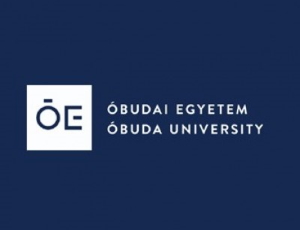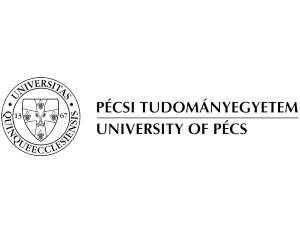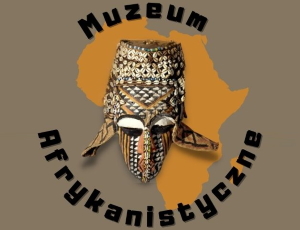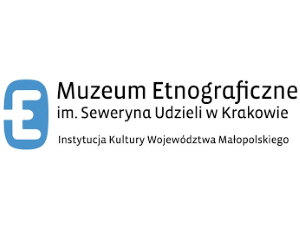
The Óbuda University is a public Hungarian technical university located in Budapest and Székesfehérvár. Its name comes from the district of Óbuda (Old Buda) - one of the oldest in the Hungarian capital. Formally, the Óbuda University was established in 1999 by merging three technical colleges: the Bánki Donát Mechanical Engineering Technical College (Bánki Donát Műszaki Főiskola), the Kandó Kálmán Electrical Engineering Technical College (Kandó Kálmán Műszaki Főiskola) and the Light Industry College (Könnyűipari Műszaki Főiskola), which formed the Budapest College of Technology (Budapesti Műszaki Főiskola). In 2004 it transformed into the Óbuda University. However, the origins of the university can be traced much earlier. The Óbuda University’s roots go back to the tradition and achievements of an educational institution established in 1879 - the Budapest State Central Industrial Office, and spiritually, to the heritage of the first Óbuda University, founded on August 1, 1410.
The Africa Research Institute (Afrika Kutatóintézet) is a research center of the Óbuda University, founded in 2019 in the framework of the Doctoral School for Safety and Security Sciences (Biztonságtudományi Doktori Iskolájában). The center conducts research in the field of security sciences concerning the area of the Africa continent.
Official website of the Óbuda University.
Facebook profile of the Óbuda University.
Official website of the Africa Research Institute.
Facebook profile of the Africa Research Institute.

The University of Ostrava is a public research university located in the city of Ostrava in the Moravian-Silesian Region (Czech Republic). It is a newly established university (1991) and an institution that sees its role in the development of the humanities and medical science, as well as artistic fields in the local region, which has been traditionally associated with industrial and technological spheres. It aims to contribute to solving urgent problems of the Moravian-Silesian Region in social, environmental, and health areas and to shape Ostrava as a true university town. To this end, it intends to continue using its potential to reflect the identity, culture, and history of the region, as well as to cultivate it through artistic creative activities.
The University of Ostrava (UO) is educating nearly 9,000 students in six faculties - Faculty of Science, Faculty of Arts, Faculty of Fine Arts and Music, Faculty of Medicine, Faculty of Social Studies, and Faculty of Education and offers a wide variety of disciplines and unconventional combinations of majors.
The Department of Human Geography and Regional Development is a department of the Faculty of Science, University of Ostrava. It consists of two research centres and has a wide variety of research areas, including urban geography, economic geography, and political and cultural geography. One of the traditional research areas of the Centre for Political and Cultural Geography (CPGG) is the phenomena of ethnicity, nationalism, ethnic conflicts, and separatism. On a regional level, the CPGG focuses mainly on the post-Soviet or post-communist Eurasia, but also on the Middle East, the Indo-Pacific region, and Sub-Saharan Africa.
Official website of the University of Ostrava.
Facebook profile of the Univeristy of Ostrava.
Official website of the Department of Human Geography and Regional Development.
Facebook profile of the Department.

The University of Pécs (Pécsi Tudományegyetem) is a public research university based in Pécs (Baranya County, Hungary). It was founded in 1367 by King Louis I of Hungary (in Hungary known also as Louis I the Great), thus being the first and oldest Hungarian university. In the centuries that followed, it experienced all sorts of transformations. Consequently, it was divided into smaller units, which were then merged with several other colleges. The University of Pécs as we know it today is the result of the finalization of the unification processes that ended in 2000. Currently, it consists of 10 faculties, where about 20,000 students are educated, and several research centers. In addition to studying in Hungarian, the University of Pécs offers over 100 study programs in English and German.
The Africa Research Centre (Afrika Kutatóközpont) was established at the end of 2009 at the Faculty of Humanities of the University of Pécs because of the growing interest in African Studies research. It was the first Africanist research center of this kind in the Hungarian higher education system. Starting from 2010, the Center every two years organizes international African Studies Conferences - Pécs African Studies Conference. The Center also remains in close cooperation with the research journal Afrika Tanulmányok (Hungarian Journal of African Studies, HJAS), launched in 2007, which is published three times a year in Hungarian and English.
Official website of the University of Pécs.
Facebook profile of the University of Pécs.
Official website of the Africa Research Centre.
Facebook profile of the Africa Research Centre.

The Africanist Museum in Olkusz, located in the historic building of the former St. Blaise Hospital (operating from 1849 to the 1970s) at 32 Szpitalna Street, was established in 1971 thanks to the donations given to the Society of Friends of the Olkusz Region by Bogdan Szczygieł and his wife, Bożena Szczygieł-Gruszyńska, who both lived in Niger for many years, where they worked as doctors. Over time, the collection was expanded by valuable artefacts donated by private donors. The museum in Olkusz is the only one in Poland with an Africanist profile, its collections include exhibits depicting the everyday life of the West and Central Africa peoples. A special place in the collection is occupied by items related to such ethnic groups as Tuaregs, Dogon, Bambara and Bushongo. Visitors can find there a wide selection of everyday utensils, costumes, ritual masks, musical instruments, amulets, sculptures, jewelry, and weapons from various regions of Africa. An interesting feature of the Olkusz Museum’s collections are fetishes, i.e. talismans, figurines or masks, which are attributed with extraordinary magical power. The Olkusz collection also includes over 20 African pipes made of gourds, wood, and bones of wild animals, as well as a collection of Fulan shepherd’s hats from West Africa. The museum also presents the private collection of Anna and Leon Kubarski, donated to the institution, that includes the art and painting of Sub-Saharan Africa.
Official website of the Africanist Museum in Olkusz.
Facebook profile of the Africanist Museum in Olkusz.

The Municipal Museum in Żory was established in December 2000 on the initiative of the Żory Town authorities, individuals gathered around the Society of Żory Enthusiasts and the then director of the Municipal Cultural Center, dr. Lucjan Buchalik. Until 2013, the Museum was located in the rented premises of the Municipal Cultural Center, and in 2014 it moved to its current seat at 1/2 Muzealna Street where rooms in the renovated Haering’s Villa, as well as in the added extension of the building were made available to the Museum, the latter for exhibition and storage purposes. Dating back to the beginning of the 20th century (probably 1908), the building, whose first owner was Ferdinand Haering, a veterinarian from Żory, who also served as the deputy mayor of the city, was one of the most impressive buildings in the city at the time.
In addition to exhibition activities, the Municipal Museum in Żory also conducts educational and research activities based on its employees’ own field research, mainly in West Africa. The direct effects of the conducted research are new exhibits, the expansion of the Museum’s scientific information, as well as articles and academic publications of its employees, including those related to the Museum’s own publication initiatives. The Municipal Museum in Żory is a thriving modern cultural institution that conducts scientific research and can pride itself on having interesting ethnographic regional and non-European collections, among which predominate exhibits from Africa. The Museum’s African collection began with the acquisition of objects from West Africa. Over time, however, objects from other regions of the continent also started to be collected. Currently, the collection has over 4,000 items that have been obtained through purchases and donations or brought from field research in Africa. During its more than 20-year history, the Municipal Museum in Żory has been awarded many times with prestigious awards, e.g. in 2016 it received SYBILLA (in the category ‘Ethnographic exhibitions’) for the exhibition “Polish way of exploring the world” – it is an award for the museum event of the year (equivalent to a museum Oscar award) by the National Institute for Museums and Public Collections.
Official website of the Municipal Museum in Żory.
Facebook profile of the Municipal Museum in Żory.

The Ethnographic Museum of Kraków first opened on February 19, 1911, thanks to the unflagging efforts of Seweryn Udziela, pedagogue, community volunteer, and author of many ethnographic works. Taking advantage of the climate of the preparations for the patriotic anniversaries in Kraków and appealing to the community for donations, the Museum announced that it was collecting any objects connected to the life and artistry of rural populations on Polish and neighboring lands, as well as collections from more distant countries “as long as they are donated by Polish travelers or collectors”. In 1913, the museum established its seat in the Wawel Castle. The collection was systematically growing thanks to the involvement of community activists and collectors, at the outbreak of the Second World War it numbered 30,000 objects. In 1945 the Ethnographic Museum Society handed over its collection to the state. Three years later Tadeusz Seweryn, Udziela’s successor, managed to secure, through great effort, a new office in the former Town Hall in Krakow’s Kazimierz district. In 1951 he oversaw the Museum’s first permanent exhibition. In 1986 the Museum was given, in perpetuity, the use of a second historic building on the 46 Krakowska Street, known as “The Esther’s House”.
The collection of the Ethnographic Museum in Krakow is the largest and oldest ethnographic collection in Poland. Since its establishment, the Museum has expanded it to over 80,000 objects. The Museum conducts research, as well as scientific, publishing, educational and exhibition activities. The core of its collections are objects from the pre-war and present-day Poland. No less important and valuable are the collections from other countries and other parts of the world (including the world’s oldest Siberian collection, collections from Asia, America, Oceania, and Africa).
The African collection includes collections from the area of today’s Namibia and Botswana related to the culture of the San people (Bushmen) donated by Roman Stopa, an outstanding Africanist and professor of the Jagiellonian University. A unique collection of over 1,000 photos from Morocco was donated to the Museum by Marian Maurizio Abramowicz - mountain climber, poet, traveler, agricultural engineer. The Seweryn Udziela Ethnographic Museum in Krakow has organized several exhibitions related to African cultures. Among others, in 2017 there was an exhibition entitled “Against all odds. Kabylia” where Kabyle jewelry from the private collection of Urszula Zanotti was presented. It was the first Polish exhibition presenting the culture of Kabylia, a region of Algeria that has maintained its own identity for almost two thousand years, against all odds.
(based on materials from the official website of the Museum and the website of the Lesser Poland Voivodeship https://www.malopolska.pl)
Official website of the Seweryn Udziela Ethnographic Museum in Kraków.
Facebook profile of the Seweryn Udziela Ethnographic Museum in Kraków.

